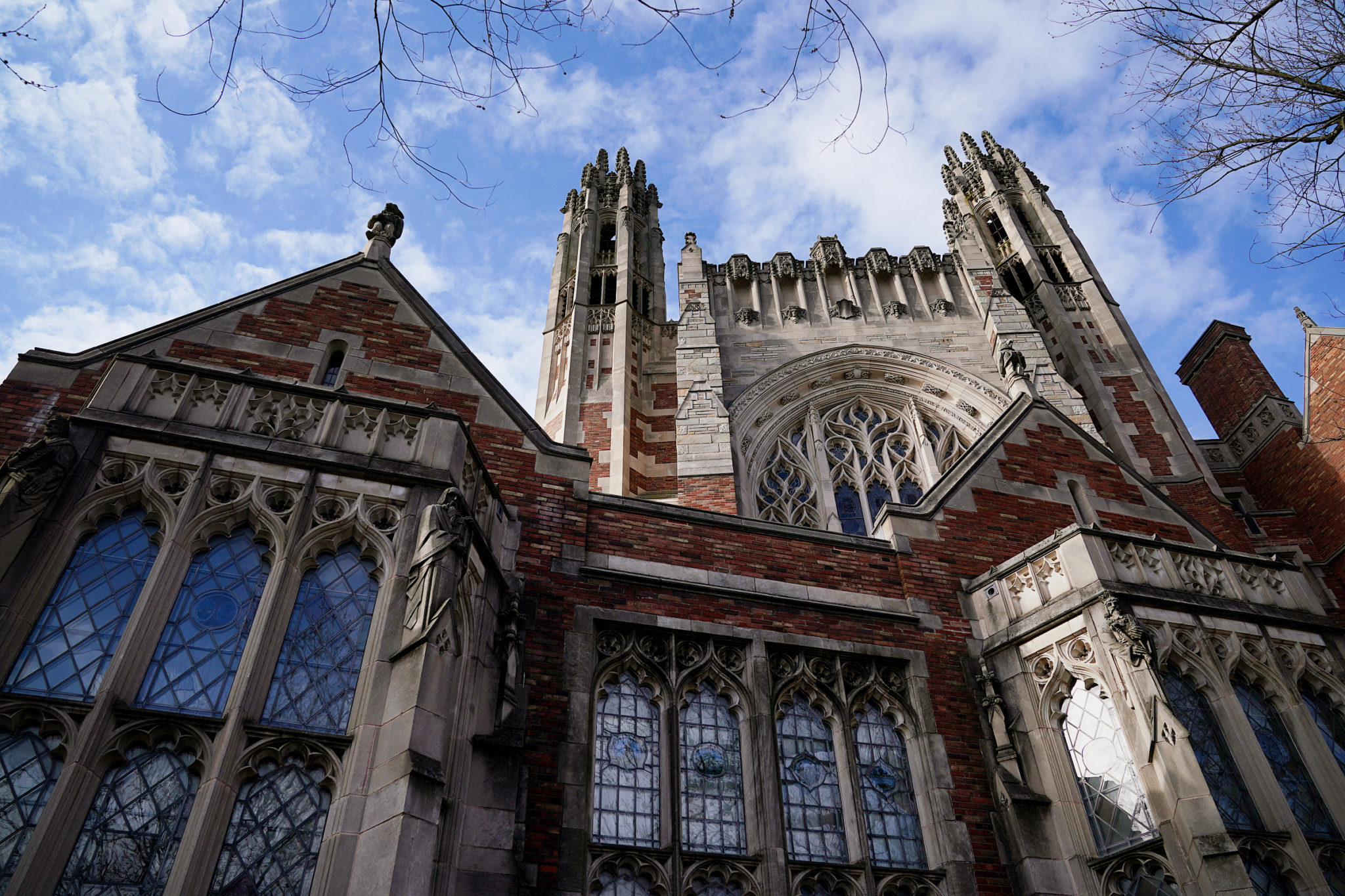Law School clinic represents former Bard professor in high-stakes civil rights lawsuit
The Yale Law School’s Strategic Advocacy Clinic filed a harrasment complaint last week against Bard College, on behalf of the school’s recently-fired gay Black female professor.

Tim Tai, Staff Photographer
The Yale Law School’s Strategic Advocacy Clinic filed a lawsuit last week on behalf of a professor who alleges she faced sex and race-based harassment during her time at Bard College.
The civil complaint was filed on Aug. 25 in the Southern District of New York. The Law School clinic, which focuses on criminal justice and inequality issues, is representing an unnamed gay Black female professor against Bard College, the plaintiff’s previous employer. While at Bard College, the plaintiff says she advocated for the victims of racial and sexual harrasment at Bard. Last year, Bard College launched an investigation into the professor — ultimately leading to her termination. The Law School clinic’s complaint was filed on charges of racial and sex-based harrassment during the plaintiff’s employment, as well as a hostile campus environment for people of color.
“Bard College purports to be a liberal, forward-thinking institution that values diversity of identity and of thought,” Saja Spearman-Weaver LAW ’23 said. “And in some ways, it may make good on its promises. But for our client, and the students of color she worked to protect, the inner politics of Bard College were a source of trauma and betrayal. I think this case is exceedingly relevant to our nation’s continued efforts to make our behavior match our constitutional ideals.”
Avery Gilbert, clinical lecturer and director of the strategic advocacy clinic, said that the case involves “a long history” of the plaintiff’s negative experiences on account of her race, gender and sexual orientation at the “insular” and “white” campus of Bard College.
A spokesperson for Bard College denied the validity of these claims in a statement to the News.
“Bard College does not generally comment on pending cases, but the allegations in this complaint are so outrageous that they require response,” the Bard College spokesperson wrote. “The complaint filed last week against Bard has no merit, and the College will defend itself and our colleagues against these baseless claims in court.”
By contrast, Gilbert told the News that the clinic believes the investigation into the plaintiff and her subsequent termination was “retaliatory.” The investigation had directly followed a complaint that the professor raised to Bard College administration about the college not providing sufficient Title IX accommodations to students who had been sexually assaulted on campus, Gilbert said.
Bard College, however, disputed the claim that the investigation and termination were retaliatory.
“The plaintiff … was terminated for cause after a thorough, independent investigation, and is making provably false statements in the complaint,” a spokesperson for Bard College wrote. “As an institution, the College believes in the importance of facts, transparency and the rules of evidence. We want to push back on the terrifyingly successful exploitation of falsehoods in public life.”
According to Gilbert, there is often a “disincentive” to bring these civil cases to the courtroom because of the power discrepancy between large institutional employers, like Bard College, and their employees.
Gilbert added that the professor remains anonymous in the Law School clinic’s complaint to safeguard her safety and employment prospects.
“I was, and am, terrified,” the professor wrote to the News. “I’m terrified of the retaliatory actions that Bard College could (and already has) attempted to take against me. But my terror is outweighed by the fact that I also need to live with myself. I can’t, in good conscience, be part of the seeming collective tacit agreement at Bard to be silent about illegal and unethical institutional actions any longer.”
The professor alleged that she discovered multiple violations of the Clery Act, which requires colleges to report crimes that occur on campus, and that Bard College had been reporting data erroneously.
Per the Law School clinic’s complaint, Bard College’s reasons for investigating the professor were that she engaged students in topics of racial subjugation, informed students about personal experiences of racist attacks in the college town and invited a Black artist to campus without providing proof to Bard that the artist was not “dangerous.”
“The United States promises to be a welcoming place for all kinds of vulnerable people, but too often, the private interests of a few powerful people perpetuate exclusion,” Spearman-Weaver said. “This case, like all cases the clinic takes on, represents on a small scale a larger, national issue.”
The Law Schol clinic’s legal compaint describes several instances of alleged discrimination due to Bard College policies.
The complaint mentions Bard College’s overall “racist” and “egregious” conduct. It points to other Bard professors referring to the plaintiff as “feral” and a “high yellow sweetie,” among other racially-charged comments. The complaint also cites situational racist treatment in which the plaintiff’s Black guests were held at gunpoint by state police in the middle of the night when visiting Bard College.
Spearman-Weaver added that the case is particularly relevant for young individuals, adding that the case is about “something bigger” than the professor’s own experiences.
The professor similarly told the News that the lawsuit can be seen through the lens of critical ethnography, which is a research method that explores ways to redress social inequities.
“This case is about much more than just one person,” the professor wrote to the News. “The students who reported assaults and discriminatory actions to me over the years deserve justice, as do the many hard working past and present employees of color and white Bard employees who have tried to do the right thing.”
The Yale Law School clinic filed the complaint jointly with the California Civil Rights Law Group.







